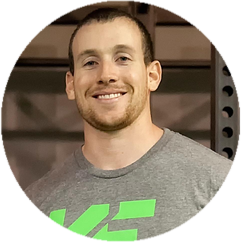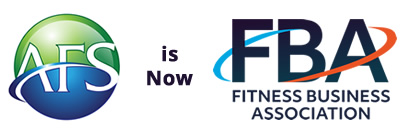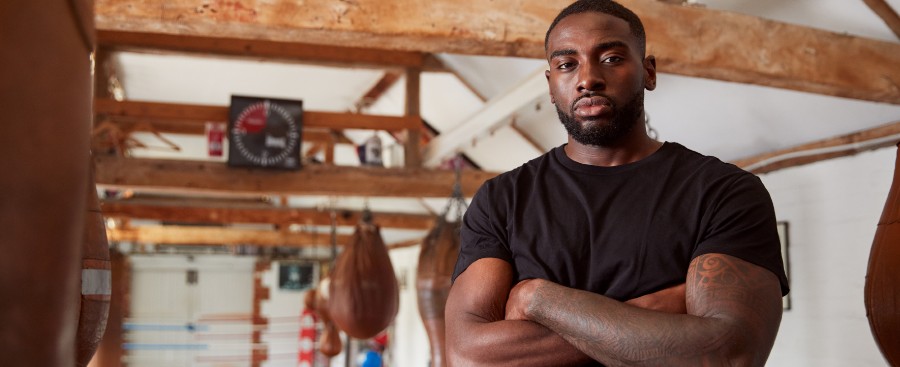 By Dan Kleckner, Special AFS Contributor
By Dan Kleckner, Special AFS Contributor
2020 has been a tough year for all fitness businesses and the reality is about 30% will not make it into 2021. I currently own three gyms in two different states.
Two of the three were completely shut down from March to June 2020 and have been shut down again since November. To say it’s been a year of overcoming challenges is an understatement.
I’ve had to learn to adjust, adapt, and accept what I can’t control. I wanted to share some of the lessons I’ve learned this year as an owner and consultant to hopefully help others who are trying to keep their doors open into 2021. Given every state’s guidelines are different, and every business is different this information may not be 100% applicable to everyone, but hopefully it provides some helpful information.
Online training is a temporary solution but should not be your main business focus
While there are exceptions to this and some businesses can do very well transitioning to full-time online, I would not recommend making this transition. The online space is very crowded, and it can be difficult to stand out.
People also tend to get bored with online training and often jump back and forth between several online programs, making retention tough. Instead, we’ve found success using online training to enhance our current offerings – utilizing online platforms for things such as mobility and nutrition sessions.
What we do matters
Most of us got into the fitness business so we could help people, and sometimes it’s easy to forget the daily impact we have on our clients’ lives. This year more than any other, I’ve received countless messages from clients saying how thankful they are that we are still open.
The pandemic has taken a toll on people’s mental health and several of the clients who reached out are dealing with anxiety and depression due to isolation. I’m thankful that our gyms provide a place for people to come and feel some sense of normalcy.
Fight like hell
Change is a part of life and a part of the business. You can either accept the world as it is now, adapt to how you have to live and build a forward-looking life or you can feel sorry for yourself and use this pandemic as an excuse to give up on your business. Either way, you are the only one that can fight for your business and fight to continue to move forward.
Change is a part of life and a part of the business. You can either accept the world as it is now, adapt to how you have to live and build a forward-looking life or you can feel sorry for yourself and use this pandemic as an excuse to give up on your business.
Voicing your frustrations on social media can be the death of your business
With the country so divided, no matter what you say from a political view, people are going to disagree with you. I’ve seen many business owners post on social media about defying the governor’s orders and this only leads to disaster. Personally, I am the type of person who quietly accepts how things are and will re-adjust my life to fit the world as it is, not how I want it to be. Complaining on social media does no good and the backlash you will get can ruin your business.
Semi-private training is the superior business model
I’ve been saying this for a long time, but it has proven true this year more than ever. Our semi-private training is the main reason we survived this year. For the past several years, most new gym franchises that have opened focus on large group training models – and it’s becoming a crowded space. There are exceptions to the rule, but I highly discourage anyone interested in opening their own fitness business to follow the large group/class model. Some of the reasons I believe the semi-private model is superior include:
- Your client attrition rate with semi-private training is typically 3% versus 10% with the large group model.
- You can capitalize on the monthly average client spend in the semi-private model, which means you won’t need as many total members to meet your profit margin goals.
- The large group training model will be the last model to return to “normal” after the pandemic. It will be some time before you can have 30 people in a class again and some people may never feel comfortable returning to large group training. For instance, when my gyms were able to re-open in June, we saw a huge surge in new clients who didn’t feel safe in the large group model anymore and were willing to pay more for a smaller semi-private workout.
While 2020 has been a very difficult year, I do believe there is a bright future for the fitness business. It won’t be easy, and it will require adaptation, but there is hope. As always, if you have any questions or just need to talk to someone else in the fitness industry right now, feel free to reach out to me.
Dan is the owner of Kutting Edge Fitness in Kirkland, Washington and Kinetic Fitness in Butte, Montana – two start-up training gyms. He has worked in the health and fitness field for 15 years and holds a B.S. in Applied Health Science from Montana Tech University, where he was also a collegiate athlete.
Dan is a Certified Exercise Physiologist through the American College of Sports Medicine and a level 2 Titleist Performance Institute Golf Fitness Professional. He has been mentored by some of the top golf fitness and fitness business professionals in the country including Thomas Plummer, Rick Mayo, Frank Nash and Jason Glass. He now mentors several start-up gym owners himself. Dan is a well-respected speaker in the greater Northwest and is considered an expert on the business of start-up gyms, improving strength/power for golf and other rotational sports, and small group training.


Join the Conversation!